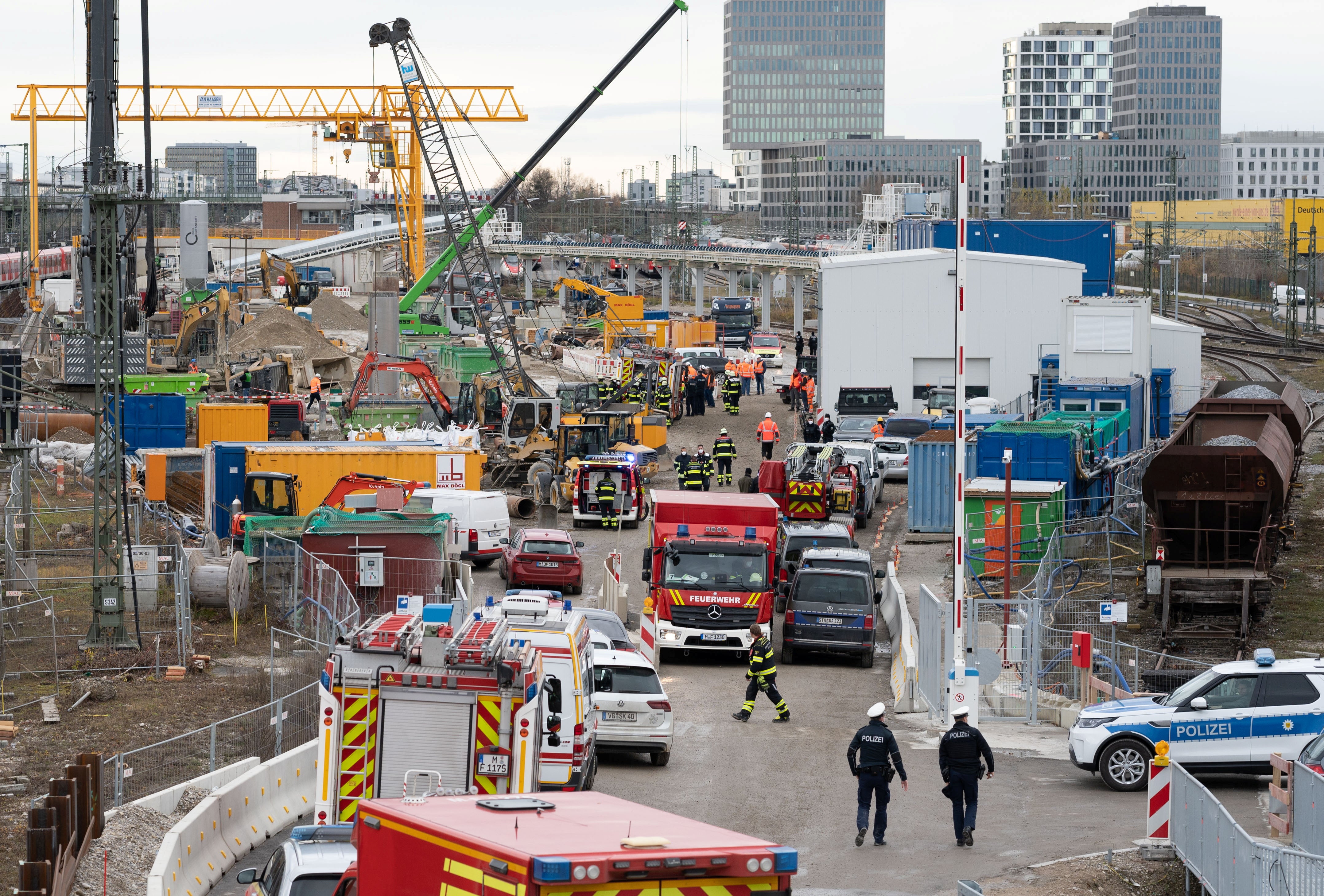Four injured after old World War II aircraft bomb explodes in Munich
Blast happened as a bridge was being drilled to build a tunnel near Munich’s train station

Four people have been injured in Germany after an old aircraft bomb from World War Two exploded at a bridge near Munich’s main train station.
The Munich fire brigade said one of the people was seriously injured.
More than 2,000 tonnes of live bombs and munitions are discovered each year in Germany, more than 70 years after the end of World War Two.
The explosion happened as the site was being drilled to build a tunnel, police said, adding the area had been cordoned off.
“There is no danger outside this area,” police said.
Explosives experts were summoned to the site to examine the remains of the bomb, the fire brigade said.
Due to the blast, rail travel to and from the main train station was suspended, according to rail operator Deutsche Bahn. It was not clear when rail traffic would resume.
World War Two bombs are regularly discovered during construction work in Germany.
During the war, British and American warplanes pummelled the country with 1.5 million tonnes of bombs that killed 600,000 people. Officials estimate that 15 per cent of them failed to explode, some of which were buried six meters (20 feet) underground.
The bombs are usually defused by experts or destroyed in controlled explosions. However, there have been cases of deadly blasts in the past.
Three police explosives experts in Goettingen were killed in 2010 while preparing to defuse a 1,000-pound bomb, and in 2014 a construction worker in Euskirchen was killed when his power shovel struck a buried 4,000-pound bomb. In 1994, three Berlin construction workers were killed in a similar accident.
In 2012, a fireball lit up the sky in Munich, causing millions of euros of damage to 17 buildings, when authorities had to detonate a deteriorated 500-pound bomb. In 2015, a 1,000-pound bomb ripped a three-meter-deep hole in a motorway near Offenbach in central Germany.
Reuters
Join our commenting forum
Join thought-provoking conversations, follow other Independent readers and see their replies
Comments
Bookmark popover
Removed from bookmarks